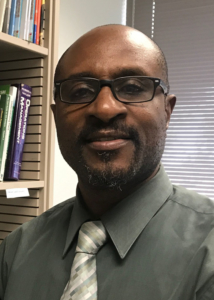July 9, 2018 – Evidenced from the numerous families assisted by Prairie View A&M University’s Cooperative Extension Program after Hurricane Harvey in counties like Waller, Harris and Liberty, underserved communities, particularly in the rural areas of Texas, can significantly benefit from research-based disaster education. Researchers contend natural disasters such as hurricanes, wildfires, droughts, and floods are more intense and frequent. Nonetheless, masses of people are saved because these studies result in management tactics that are comprehensive all hazards approaches. When disaster strikes, responses consider the effects on transportation, food supply, and electrical grid repair. Unfortunately, during these trying times, the hardest hit are those with the most limited access to resources — those served by the mission of the 1890 land-grant community. Finding normalcy for these communities takes longer, disrupts families, closes small businesses and undoubtedly has a significant psychological impact.
The Extension Disaster Education Network (EDEN) was established to reduce the impact of disasters through educational catalogs, courses, webinars and experiential exercises. Made possible with the support of the USDA National Institute of Food and Agriculture (NIFA), EDEN’s delegation of agricultural experts represents over 75 disciplines at 77 state Extension programs across the United States. This past spring, PVAMU and other Land-Grant Universities gathered at Tennessee State University to become certified through FEMA’s “Religious and Cultural Literacy and Competency in Disaster” train-the-trainer course. Sponsored by the 1890-EDEN Advisory Group, the workshop is an integral part of the process to create an action plan, which outlines the steps that 1890 LGUs can take to improve emergency management practices on individual campuses and strengthen related programming that targets underserved communities. This 1890-EDEN Project, led by Principal Investigator and researcher, Noel M. Estwick from the Cooperative Agricultural Research Center, was an essential step in relating the value of the program to building emergency management capacity within the 1890 network.
Under the leadership of Estwick and Carolyn J. Williams, current chair of the 1890 Association of Extension Administrators, participating 1890 institutions included Prairie View A&M University, Alabama A&M University, Fort Valley State University, Tennessee State University, University of Arkansas Pine Bluff, Florida A&M University, Kentucky State University, North Carolina A&T State University, Central State University, Tuskegee University and Purdue University. When the plan is completed, more underserved communities of Texas and the 1890 system can expect to see an enhanced network of extension agents and educators who are reliable resources on research-based disaster mitigation, preparedness, response, and recovery.
Special thanks are extended to Finis Stribling III (1890-EDEN Co-Principle Investigator), Rita Fleming, the EDEN Executive Committee, FEMA trainers (Willie T. Womack, Marcus Coleman, and Nicole Wood), and USDA/NIFA personnel (Beverly Samuel and Torey Powell).
This work is supported by the USDA National Institute of Food and Agriculture and national EDEN Executive Committee through a contract from Purdue University.

Noel M. Estwick, Ph.D.
Social Systems & Allied Research
nmestwick@pvamu.edu
(936) 261-2526

